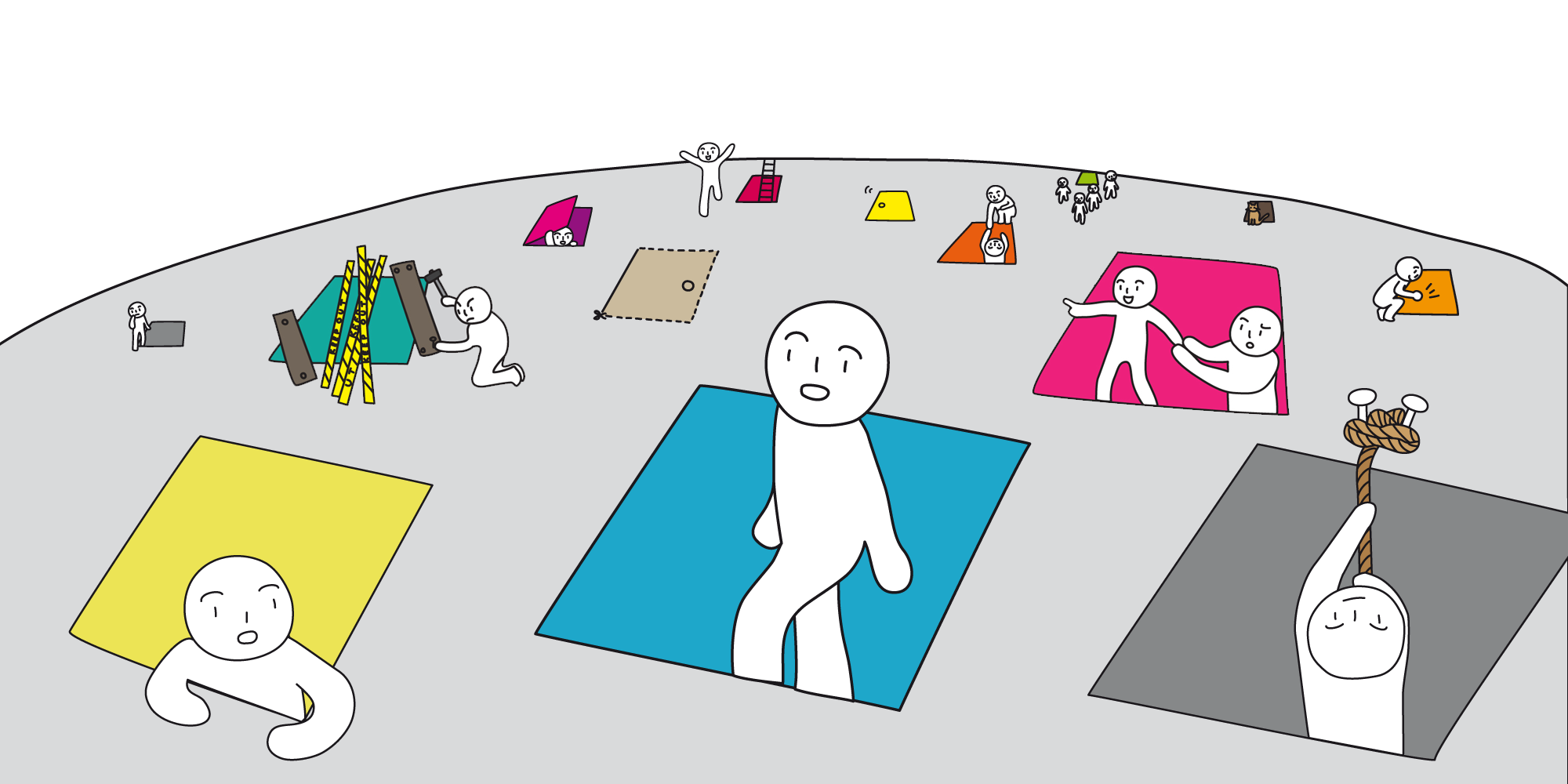machine learning
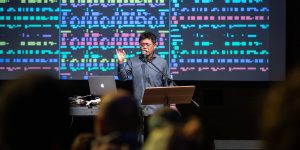
Voices from AI in Experimental Improvisation
Tomomi Adachi (JP), Andreas Dzialocha (DE), Marcello Lussana (IT)
Voices from AI in Experimental Improvisation is a project by Tomomi Adachi, Andreas Dzialocha and Marcello Lussana. They built an AI called “tomomibot” which learned Adachi’s voice and improvisation techniques using neural network algorithms. The performance raises questions about the logic and politics of computers in relation to human culture.
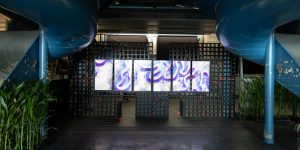
Meandering River
onformative (DE), kling klang klong (DE)
Meandering River is an audiovisual art installation comprised of real-time visuals and music composed by an A.I. through machine learning. The piece reinterprets the shifting behavior of rivers in the landscape, regarded from a bird’s eye view. Minor changes of riverbeds are not visible for the bare eye, as they are gradually happening over time. Spanning over multiple screens Meandering River visualizes these altering landscapes and makes the changes visible. It leaves the observer with a unique perception of time.

Ciutat Vella’s Land-use Plan
300.000 Km/s (ES)
Big Data, KDD and Citizen Participation to Ensure Coexistence between Economic Activity and Citizens’ Quality of Life The project embodies a new way of making urban planning. Fueled by massive information (open data and big data) and complemented with qualitative data arising from citizen participation, the project applies novel methodologies of spatial analysis based on machine learning and artificial intelligence to inform, simulate, and draft a public policy that puts the focus on preserving liveability in cities.
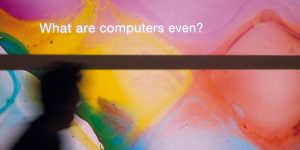
A reactive poetry machine
Fabian Frei (CH)
*A reactive poetry machine* is an experiment that examines the outcomes of trying to teach a machine poetry. Will it forever produce poetry in different variations of the same kind or will it succeed in crossing the threshold and creating something new? The interactive installation invites visitors to the Ars Electronica Festival to spend a moment away from the hustle and bustle of the festival to reflect on AI, poetry and their relationship.
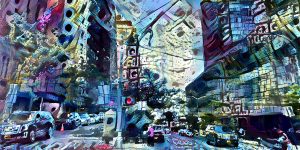
VH AWARD
by Hyundai Motor Group (KR)
The VH AWARD’s purpose is to uncover promising Korean artists creating media art. It seeks to support the art-making process of these young media artists but to also help them gain international recognition. To guarantee a fair evaluation, award winners will be selected by highly celebrated curators from all around the world. In addition, the winners will have the opportunity to display their works of art through the 24.4-meter-long media wall, located at the Hyundai Motor Group University.
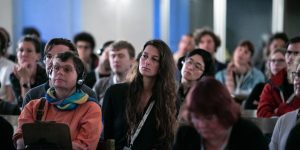
Panel I: Homo Deus
Renata Schmidtkunz (DE), Josef Penninger (AT), Sophie Wennerscheid (DE)
Renata Schmidtkunz hosts four panel discussions in the summer refectory, prominently featuring Josef Penninger, Sophie Wennerscheid, Oliviero Toscani, Amanda Cox, Markus Poschner, and others. The topic is dedicated to the role of science and research, which initially had to confirm a religious view of the world, then was subordinated to economic rationality, and now, in the dawning age of AI, is reorienting again. Social acceptance in relation to current AI research will be discussed. Another focal point of the panels will be the new artistic possibilities opening up due to AI applications, which also lead to a variety of novel business models or issues with copyright regulations.
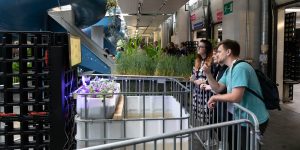
TeleAgriCulture_Rhizomatic Bias
Julian Stadon (AU), Erik Overmeire (NL), Daniel Artamendi (ES), V2_ Lab for Unstable Media (NL)
What happens if biotopes start chatting to each other using social network communication models? TeleAgriCulture_Rhizomatic Bias aims to explore how bias grows in machine learning and intelligent systems. This artistic provocation points at the much larger problems we face when our emotional biases and social constructions affect the way artificial intelligent systems evolve and impact our lives.
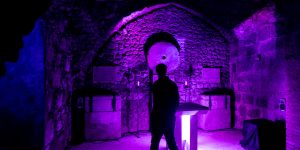
La fabrique des monstres
Daniele Ghisi (IT)
How can a machine learn to produce music? A concept album of generative music, a collection of musical monsters exploring sample-by-sample deep learning generative models, inspired by Mary Shelley’s Frankenstein and used in Jean François Peyret’s eponymous theatrical piece.
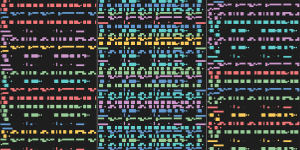
Voices from AI in Experimental Improvisation
Tomomi Adachi (JP), Andreas Dzialocha (DE), Marcello Lussana (IT)
Voices from AI in Experimental Improvisation is a project by Tomomi Adachi, Andreas Dzialocha and Marcello Lussana. They built an AI called “tomomibot” which learned Adachi’s voice and improvisation techniques using neural network algorithms. The performance raises questions about the logic and politics of computers in relation to human culture.
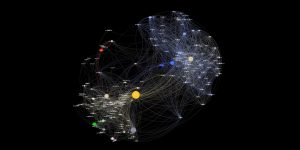
Critical Cartography: Unauthorized Blue Prints
Vladan Joler (RS)
This map is based on a 5-year internet monitoring process and over 400 different cases of violations documented and analyzed by the Share Foundation. Though different methods represented in this map are observed in our local context, we believe that they are also being used worldwide in similar forms. This map is an attempt to interconnect most of those issues into one map, one possible narrative, one possible reading of those processes.
